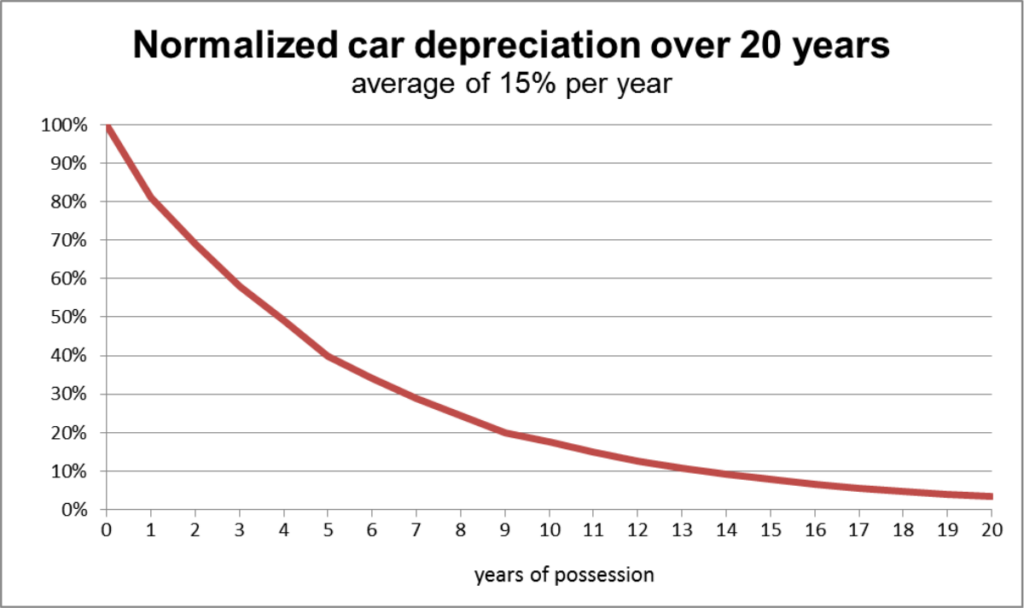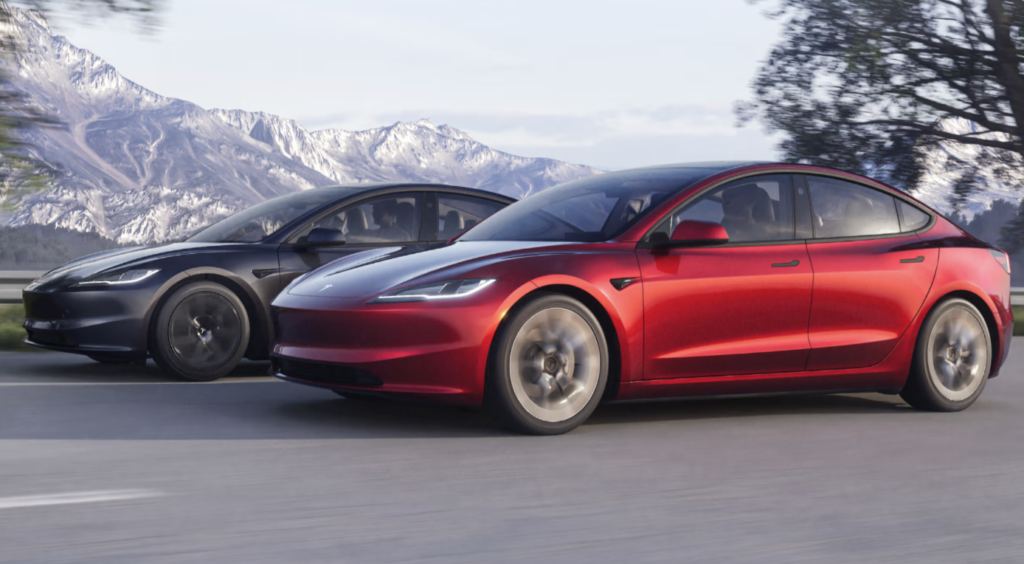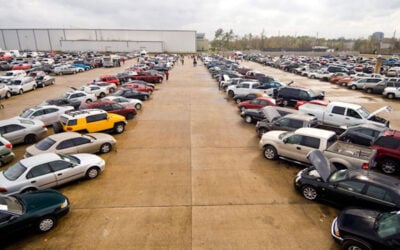Consider this shocking statistic: the average cost to own and operate a new car in 2024 was $12,297. Cars are expensive, and the financial burden doesn’t stop at the dealership. From high-interest rates to soaring insurance premiums and maintenance costs, owning a car involves many expenses that can drain your wallet.
Understanding the total cost of car ownership is crucial for budgeting and financial planning. In this guide, we’ll uncover the hidden costs of owning a car, helping you make informed decisions and avoid financial surprises.
Depreciation From Day One

This is often the largest hidden cost of car ownership. A new car can lose a significant portion of its value within the first few years of ownership, which impacts its resale value. Within the first year of ownership, many cars will lose up to 20% of their value. After that, they may lose about 15% more per year until they are roughly five years old. Depreciation slows each year after, but by this point, the car has already lost over 50% of its value.
This is a major reason why financing a new car for more than 60 months (5 years) is strongly discouraged.
👉 Use our FREE car depreciation calculator to run the numbers!
Insurance Premiums
Insurance premiums are a substantial ongoing expense, especially for younger drivers, those with less-than-perfect driving records, or owners of cars that are expensive to insure. Even credit scores impact auto insurance rates.
Car insurance rates soared 24% in 2023, pushed higher by rising repair costs, natural disasters, and more frequent car accidents. Rising repair costs are largely due to higher car prices that automakers have done their best to normalize since 2021.
How much should the average driver expect to spend on car insurance in 2025? The national average premium for a full-coverage policy now stands at $2,019 per year. That comes out to $168 per month on average. State-minimum liability insurance averages at $1,154 annually, but offers far less protection in the event of an accident.
Year after year, auto insurance rates continue to rise faster than wage growth. In other words, you’re not the only one noticing that insurance premiums are taking up more of your paycheck.
Maintenance and Repairs
Regular maintenance is necessary to keep a car running efficiently, but the costs can add up. Unexpected repairs can be particularly costly and are often unpredictable. In 2023, drivers averaged 9.83 cents per mile driven on maintenance, repairs and tire replacement, according to AAA. For the average American driving 15,000 miles per year, that adds up to $1,474 per year on car maintenance.
The cost of car maintenance is so important to the American economy that the Federal Reserve keeps tabs on prices. Their data shows that motor vehicle parts and equipment costs have skyrocketed since the end of the COVID-19 pandemic. Check out their graph below…

It’s important to understand that maintenance costs vary by make and model. It IS possible to avoid the costliest repairs by selecting a more reliable vehicle with less expensive parts and repair costs. Compare auto maintenance costs with our FREE tools.
Fuel, No Matter What Kind
The cost of fuel is a regular expense that can fluctuate wildly. For those who drive more or have less fuel-efficient vehicles, this cost can be significant. Consider the following: the average car in America gets 25 miles per gallon in 2025. At $3.50/gallon, the typical American driver traveling 15,000 miles per year will spend $2,100 each year on fuel. Hybrid vehicles that often get over 50 miles per gallon can cut this expense in half.

What about electric vehicle fuel costs? Charging at home is always cheapest, and is certainly cheaper than gas. However, public charging can get expensive. At typical American electricity rates, it costs between $10 and $20 to charge an EV battery from empty to 100% full at home.
Public fast chargers vary more in price compared to gas prices. A good deal for EV charging is generally under $0.45 per kilowatt-hour of electricity. Sadly, some EV charging stations charge upwards of $0.65 per kWh. Imagine if gas prices ranged from $3.00/gallon to $5.00/gallon in the same city. Crazy, right? See how much EV charging costs in your area with PlugShare.
Considering that the average EV battery has a 75 kWh capacity, public charging can get just as expensive as gasoline, if not more costly per mile driven. The good news is that most EV drivers do the vast majority of their charging at home, and save hundreds of dollars in fuel costs annually versus a gas car.
Financing: Higher Car Prices Mean Higher Interest Payments
Interest on auto loans adds to the total cost of owning a car. Longer loan terms, higher car prices, and today’s high interest rates all make auto loan interest payments soar. In 2025, the average interest rate for a new car loan is 9% APR, while used car loans average 13% APR. Financing a new car over a typical 60-month term can result in paying thousands of dollars in interest, unless you take advantage of new car financing offers.
If you extend the loan term to 72 or even 84 months, the interest costs can skyrocket, making the car significantly more expensive in the long run. This is why it’s crucial to shop around for the best financing rates and consider shorter loan terms if possible. Better yet, take advantage of the low-APR offers available today.
This free auto loan payment calculator calculates the total interest paid over the life of a car loan. Play around with the interest rate to see how big of a difference APRs can make for your payment and total cost of ownership!
State and Local Taxes
Sales tax, registration fees, and annual renewal fees can add up, especially when they are not anticipated in the budgeting process. Each state has its own set of taxes and fees, which can vary widely. For example, some states have annual property taxes that apply to vehicles, adding another layer of cost to car ownership. Additionally, many states charge an extra annual registration fee for electric vehicles and hybrids to compensate for lost gas tax revenue. This fee can range from $50 to over $200 per year, depending on the state.
Understanding these costs ahead of time can help you budget more accurately and avoid surprises. Be sure to check your state’s specific vehicle tax and fee structure before purchasing a car.
The Total Cost of Car Ownership Is Rising
Owning a car comes with many hidden expenses that can add up quickly. From steep depreciation and insurance premiums to maintenance, fuel, financing, and taxes, these expenses can significantly impact your budget. In 2025, higher insurance premiums and climbing maintenance costs are adding to the total cost of car ownership. Budgeting for these expenses matters now more than ever before.
By understanding these hidden costs, you can make more informed decisions and better prepare for the true cost of car ownership. Remember, doing your due diligence and researching all potential expenses will save you from unexpected financial strain down the road.
👉 Tired of car shopping hassles? Let us handle it for you with our CarEdge Concierge service. Our experts will find the perfect vehicle, negotiate the best price, and take care of all the details, saving you time and money. Learn more about CarEdge Concierge, the #1 car buying service in America.








![10 Cars with the Lowest Cost of Ownership [2026 Data]](https://caredge.com/wp-content/uploads/2026/02/2026-Toyota-Corolla-Hatchback-400x250.png)




0 Comments